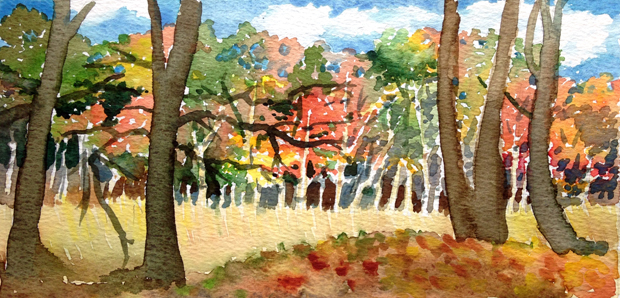Where there is injury, pardon;
This third line of St. Francis’ prayer is a difficult one for me, although it does depend on whom I’ve injured. I don’t seem to have as much trouble apologizing when I’ve overreacted or said something unkind to my son as with my husband. This is likely because my ego is less invested in hardened stories about our relationship, the sort of stories that begin with “It’s not fair. . . ,” or “You always. . . ,” or “You never. . . .”
When my son was little, I studied Marshall Rosenthal’s Nonviolent Communication, which appealed to me for its methodical approach and lack of judgment. He teaches that conflict arises from someone’s needs not being met. We can diagnose that in ourselves when an encounter creates a strong emotional response. A feeling of sadness, frustration or anger, then, isn’t wrong or selfish, as I was taught as a child. It is, rather, an entirely natural and reliable guide to one’s inner state, which is produced by an unmet need.
I had a steep learning curve right from the beginning, due to ignorance of my own emotional state and, further, my needs. Back then, I didn’t think of my study of Nonviolent Communication as a way of changing stories, but now I do. It becomes a kind of treasure hunt, which usually reveals new information and often leads to compassion for myself and the other person. When practiced even by a novice, it leads from “It’s not fair” to “My need for autonomy (or connection) isn’t being met,” from judgment and blame to vulnerability, awareness and honesty.
Blame gets in the way of pardon, always. Seeking and sowing pardon invites expansiveness, an opening to imagination and connection, rather than aligning behind a story that hardens with the telling. Blame is a wall, pardon a space of possibility.
Often, I injure those closest to me out of unthinking shorthand behavior, as happens when I’m tired or impatient. To be fair, I also have to set aside a lifetime of conditioning that ignored feelings and needs altogether, in favor of ultimatums, control and “shoulds.” When a trusted elder (such as a parent) sends you to your room for being too emotional, you learn pretty quickly to shut down that part of yourself, to ignore and distrust it.
To admit to having wronged someone requires humility and an inner strength to carry me through self-judgment to compassion. In a way, I am seeking pardon both from the person I wronged and from myself for my thoughtlessness or cruelty. My own stories and actions, then, are a threshold between inner and outer worlds, between the unseen and the visible. Rumi says it all here:
Out beyond ideas of wrongdoing and rightdoing,
there is a field. I’ll meet you there.When the soul lies down in that grass,
the world is too full to talk about.
Ideas, language, even the phrase “each other”
doesn’t make any sense.
Today, I will hold the awareness of dwelling in the both/and of injury and pardon, as an invitation to feel my interconnection with everyone I meet. My actions, whether hurting or healing, reverberate in the space between us, binding us together.


Pingback: Love is courage in action | Thriving on the Threshold
Pingback: Creating space for both despair and hope | Thriving on the Threshold
Pingback: Prayer is an expression of reciprocity | Thriving on the Threshold
Pingback: The empty echo chamber of jury duty | Thriving on the Threshold